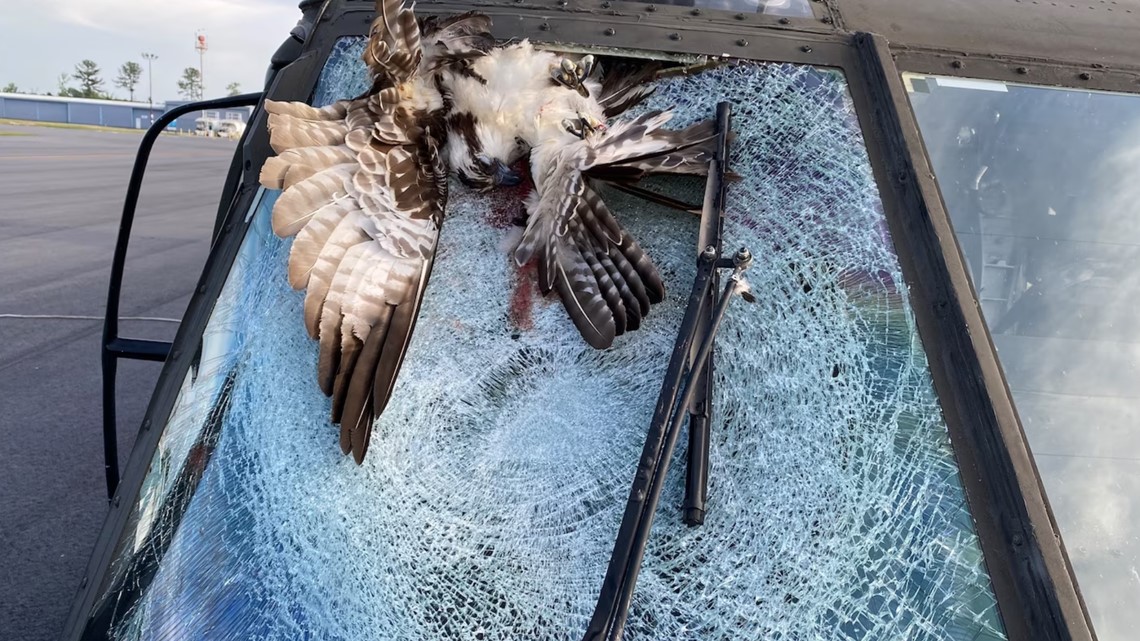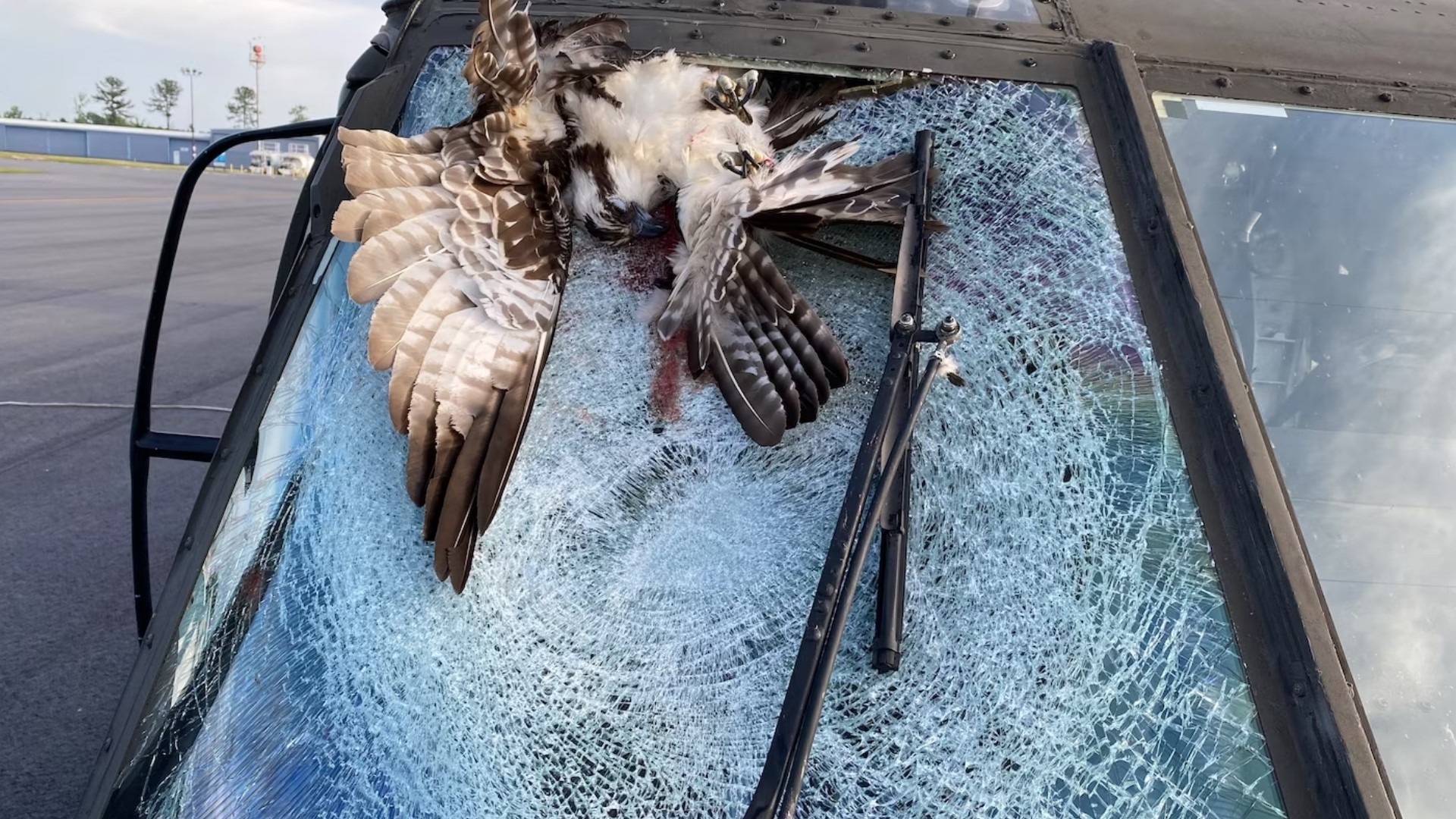HOPKINS, S.C. — A South Carolina National Guard crew managed to land safely after an osprey struck the cockpit of the helicopter they were in earlier this month.
The incident happened on June 1 as four South Carolina National Guard aviators conducted a routine training mission over Lake Marion.
“Bird!” A single word shouted in the cockpit of the UH-60L Black Hawk just before the feathered foe collided with their aircraft likely saved the lives of those on board. according to officials with the South Carolina National Guard.
The heart-stopping moment allowed the pilot in command, Chief Warrant Officer 4 Henry Wallace, a UH-60 standardization pilot with A Company, 1st Battalion, 111th Aviation Regiment, half a second to initiate a climb, he said.
The bird, later identified as an osprey, struck the windshield of the aircraft on the right side where it remained lodged, creating a grisly scene for the co-pilot, Chief Warrant Officer 2 Brandon Painter, who alerted crew members just before impact.
“There is no real emergency printed for this type of scenario,” Wallace said. “However, our first instinct was to look at the aircraft instruments. I was on the flight controls and as a crew, we determined we still had control.”


Wallace, who was evaluating Painter on low-level combat maneuvers and a mock hurricane response scenario that morning, said crew coordination was critical to their success in responding to the incident.
“As I flew the aircraft, I had Mr. Painter monitor the instruments and cautions panel for any potential lights. Crew chiefs were busy scanning for nearby landing locations just in case the situation worsened as well as monitored our instruments,” Wallace said.
Ultimately, the crew executed a smooth landing at a small airport approximately 10 minutes away.
Wallace attributed the recovery to teamwork and an experienced bond.
“Our particular crew had just returned from a yearlong deployment to Sinai, so our crew mix was superior. We had worked well together and understood each other’s capabilities,” Wallace said.
After surviving the harrowing ordeal, Wallace’s advice to commanders and senior enlisted members, even those outside of aviation, is to train for real-world scenarios.
“Keep the critical and creative thinking in the process and not only talk about these things in the formations but go out, train, and don’t be afraid to fail,” Wallace said. “That way, when something as simple as a bird strike or something more critical or catastrophic does happen, training takes over and there would be a less stressful environment to respond.”
His last bit of advice: “Return your crew safely.”

